7 Factors Of Competitive Efficiency
Author:
Unlock your full potential by engaging with our experts and community! Have questions about your fitness journey or looking for expert advice on weightlifting techniques? Don’t hesitate — leave a comment below and Sergii Putsov will provide a personalized answer and insights to help you reach your goals.
Torokhtiy is reader-supported. Some links are affiliate links, and we may earn a commission at no extra cost to you. See our disclosure page for details.
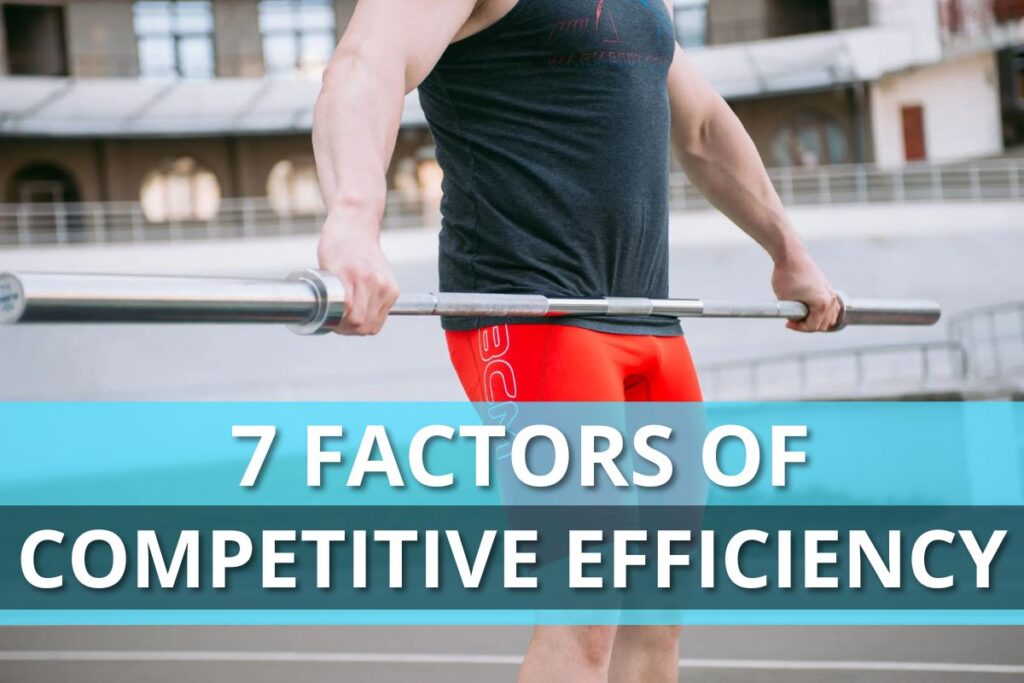
The traditional background: all things went as planned, the preparation was brilliant, workout sessions were rich in new records both in preparatory and strength exercises. Everything was absolutely clear on the competition eve, but it took 3 attempts to fix the weight in the snatch that had been lifted twice in the row on the recent workouts, while the weight in clean & jerk was caught on the very edge of the platform during the second attempt and a third attempt was failed even when trying to perform a clean. There might also be a completely different story even though the preparation wasn’t that great: you were hurting here and there, failing exercises and all this stuff, but then you settled 3 personal records and won in defiance of all your rivals’ expectations.
So what things exactly produce an impact upon a successful performance in competitions? How can it possibly be predicted? I wrote many articles about my adventures and mistakes, about rules of the first attempt selection, about psychological preparation and pre-competition warm–up… but the competitive experience remains something that each athlete must live through on his own.
Follow us!
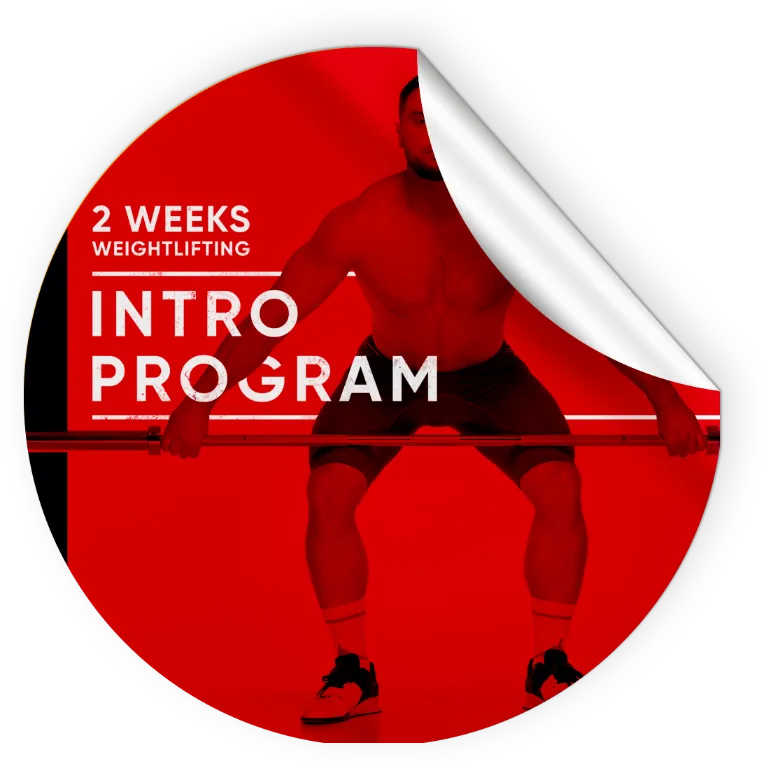
Free!
Get a 2-week Weightlifting Program as a bonus for the subscription to kickstart your training plan!

Free!
There are at least 7 major factors except for luck that produce a significant impact on a successful performance. To adequately understand the capabilities and chances of your athletes’ successful performance let’s discuss each of them.
You may like it:
- Detailed Olympic Weightlifting Program For Beginners
- 12-Week Weightlifting Program For Women (Detailed Example)
- Create Your Olympic Weightlifting Program (Examples Included)
Total strength level
Weightlifting is a kind of sport where the planned result on the competition platform is objectively influenced by an athlete’s strength development. On the one hand, it may sound banal and obvious but on the other, I saw many athletes that overvalued their super-compensation and tapering capabilities. After 2-3 weeks of recovery from high training loads in the snatch, clean & jerk and squats they were expecting an almost miraculous increment of their strength indices. Alas, there are no miracles in this world, however, there is a direct relationship between strength, assistance and competitive exercises. Read this if you’ve never heard anything on this topic yet.
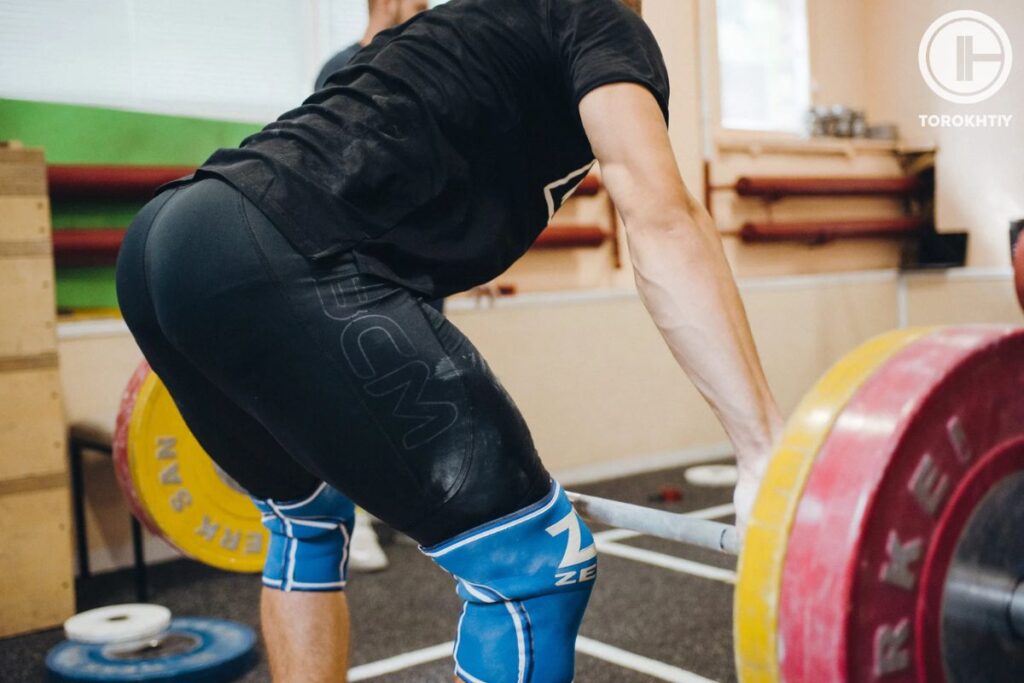
Neural system reliability
Sports psychologists use a “stress-tolerance” term. You’ve probably seen that kind of athletes that look like merciless beasts at their workouts, but these beasts turn into little scared pussycats once they enter the competition platform. This is another thing that athletes and coaches have to learn to live with. While someone can overcome the fear of the platform, competition vibe and psychological pressure of their rivals, the others have to lower their starting attempts to avoid the neural system overload and competitive burn-out.
I especially like the words that the national team chief coach Petr Alaev (the coach of legendary Victor Sots) used to tell us: “each one of the TOP-6 athletes are potential Olympic gold medal winners, but the Olympic Champion is intended for the one whose neural system is stronger”.
Technical preparedness
Each athlete has his own technical weak spot like life-long mastering the position of shoulders above the barbell or full extension in the power position phase. But even perfect athletes, which are a rare thing to meet, happen to make upsetting technical mistakes. It is important to remember that technical preparation is a part of the training process and it requires constant efforts to put in.
When we see an athlete each year making the same mistake on a competition platform the reason for losing a rank or failing the targeted weight becomes quite obvious, and it is not about the lack of strength or luck. It’s all about his technical mastery. I’ll be honest saying that in our national team I’ve seen many athletes adding extra weight on a barbell and performing extra pull or squat set instead of performing technical training to hone some of the movement phases. Unfortunately, you can’t compensate for your technical mistakes by sheer strength.
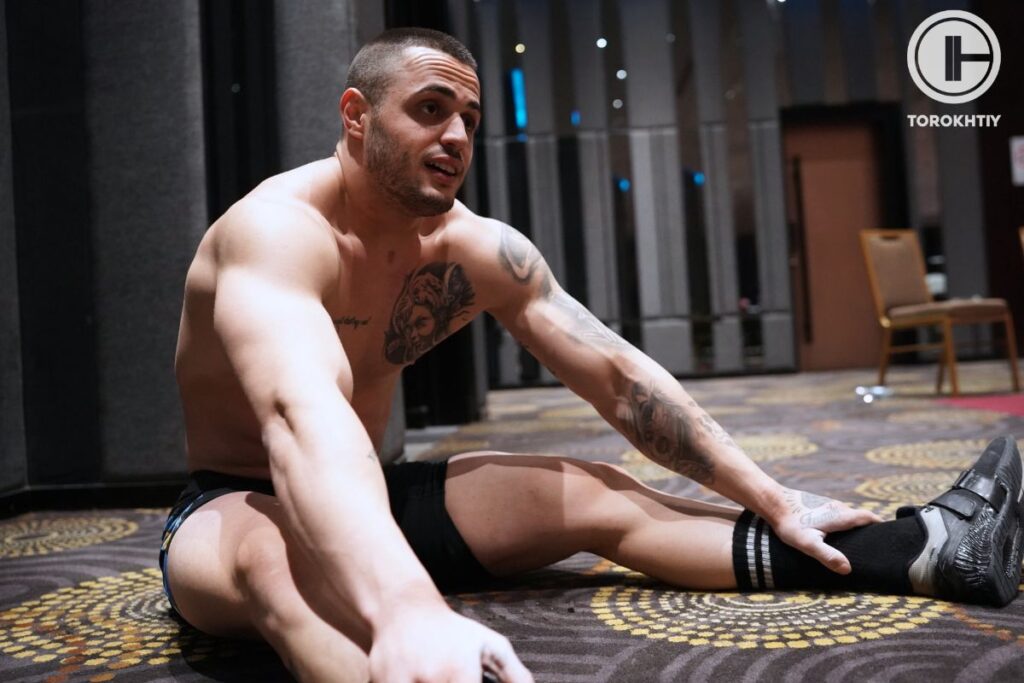
Experience
There is no other way of gaining the competition experience except for participating in competitions. Considering the weightlifting performance specifics (only 3 attempts in snatch and clean & jerk) the inexperienced athlete is unlikely to realize what has just happened – one, two, three and the competition is over. That’s why it is utterly necessary to learn to compete, thus you will stay adequate and keep everything under control. I’ve already written that athletes must compete as much as they can after the first training year, every 3-5 weeks preferably.
It is not essential to give everything to the full, it’s starting to get used to the competition platform, seeing the audience and judge, feeling the competition vibe, that is very important. The international competitions practice shows that only a few athletes managed to win a medal on their first Olympic Games. Usually, coaches provide a young 19-21 y.o. athlete a chance to obtain the necessary experience on his first Olympic platform so he can start fighting for his medal 4 years later.

Quality of preparation
Gym workouts are the most important part of the training\preparation process, but it’s still only a part. You should always remember about the daily regime, nutrition plan, recovery activities, athlete’s environment and life specifics. All these things form an outlook, comprehension and the right attitude to the workout routine he is involved in, and undoubtedly, have a certain impact upon the realization of his potential when the competition day comes.
I can honestly say that in life all things can go exactly the opposite way when an athlete proves all the world that he is the best one despite the absence of normal conditions, despite his traumas and all the encountered adversities. We should keep in mind that these are rather the unique exceptions that motivate us than a guide for action.
Strength of will
Will is an athlete’s capability to make decisions and act, it means that he can efficiently lift weights in a competition context. Looking back at my experience I can state that one of the most important champion’s mental qualities is the ability to deliberately and purposefully control your behavior and actions here and now.
I see the strength of will as a capability to mobilize your mental and physical capacities to overcome your fear as well. An athlete with a strong neural system and iron will, to my opinion, has more chances to win even than a physically and technically more gifted one.
Motivation
Motivation is the reason for action. When an athlete knows WHY he steps on the platform his efficiency is gonna be several times higher than if he goes there with no certain purpose in his mind. That’s not about a focus on a new Ferrari that each athlete should necessarily get if he wins this competition. But one of the coach’s tasks is to foster the need for efficient performance, to give a clear comprehension of why it is important to beat this weight. In our childhood, our coach always gave us different tasks: to lift at every attempt, to lift with a strict technique, to make a personal record, to qualify for a national team, just to get better than yesterday. Such motivation was super-efficient at that time.
Upon becoming a junior I was motivated for showing a good result that will grant me entrance to international competitions where I can win a medal in the end. On the adult competition platform not only do medals give you a possibility to travel all over the world but also to get public recognition, cash reward, or even an apartment.
In my dreams I still come back to this very moment at the Olympic Games in London when my coach told me: “The strategy of fighting your rivals forces us to add more weight on your barbell, and you have to lift it! You must lift it whatever it takes!!!”. For me it is still hard to understand whether it was a strength of will, motivation or something else but it’s great and that’s what weightlifting and sports are all about!
Related articles:
- Youth Training – What We Need To Know
- 10 Steps Creating Your Own Training Program
- Bad Tips
- Why Athletes Hate Jerk Lift
You might be interested in:
Why Trust Us?
With over 20 years in Olympic weightlifting, strength training, nutrition coaching, and general fitness our team does its best to provide the audience with ultimate support and meet the needs and requirements of advanced athletes and professional lifters, as well as people who strive to open new opportunities and develop their physical capabilities with us.
By trusting the recommendations of our certified experts in coaching, nutrition, and sports training programming, as well as scientific consultants, and physiotherapists, we provide you with thorough, well-considered, and scientifically proven content. All the information given in the articles concerning workout programming, separate exercises, and athletic performance, in general, is based on verified data.
The product testing process is described in more detail here.
Author: Sergii Putsov
Head of Sport Science, PhD
Best Results: Snatch – 165 kg,
C&J – 200 kg
Sergii Putsov, Ph.D., is a former professional weightlifter and National team member, achieving multiple medals in the 94 kg weight category at national competitions. With a Master’s degree in “Olympic & Professional Sport Training” and a Sport Science Ph.D. from the International Olympic Academy, Greece, Sergii now leads as the Head of Sport Science. He specializes in designing training programs, writing insightful blog articles, providing live commentary at international weightlifting events, and conducting educational seminars worldwide alongside Olympic weightlifting expert Oleksiy Torokhtiy.



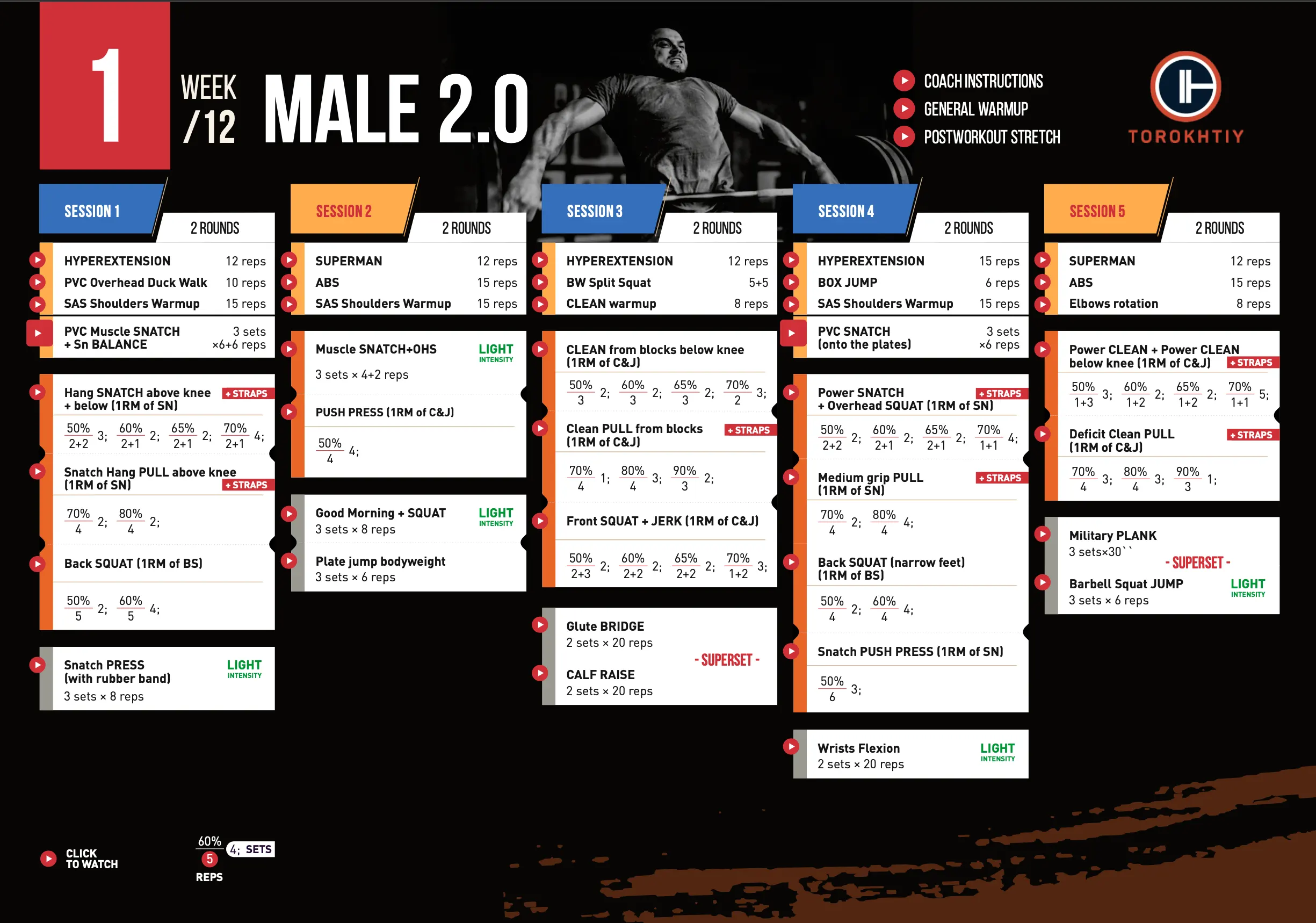
Still have questions after reading our article? Unlock your full potential by engaging with our experts and community! Don’t hesitate — leave a comment below and Sergii Putsov will provide a personalized answer and insights to help you reach your goals.